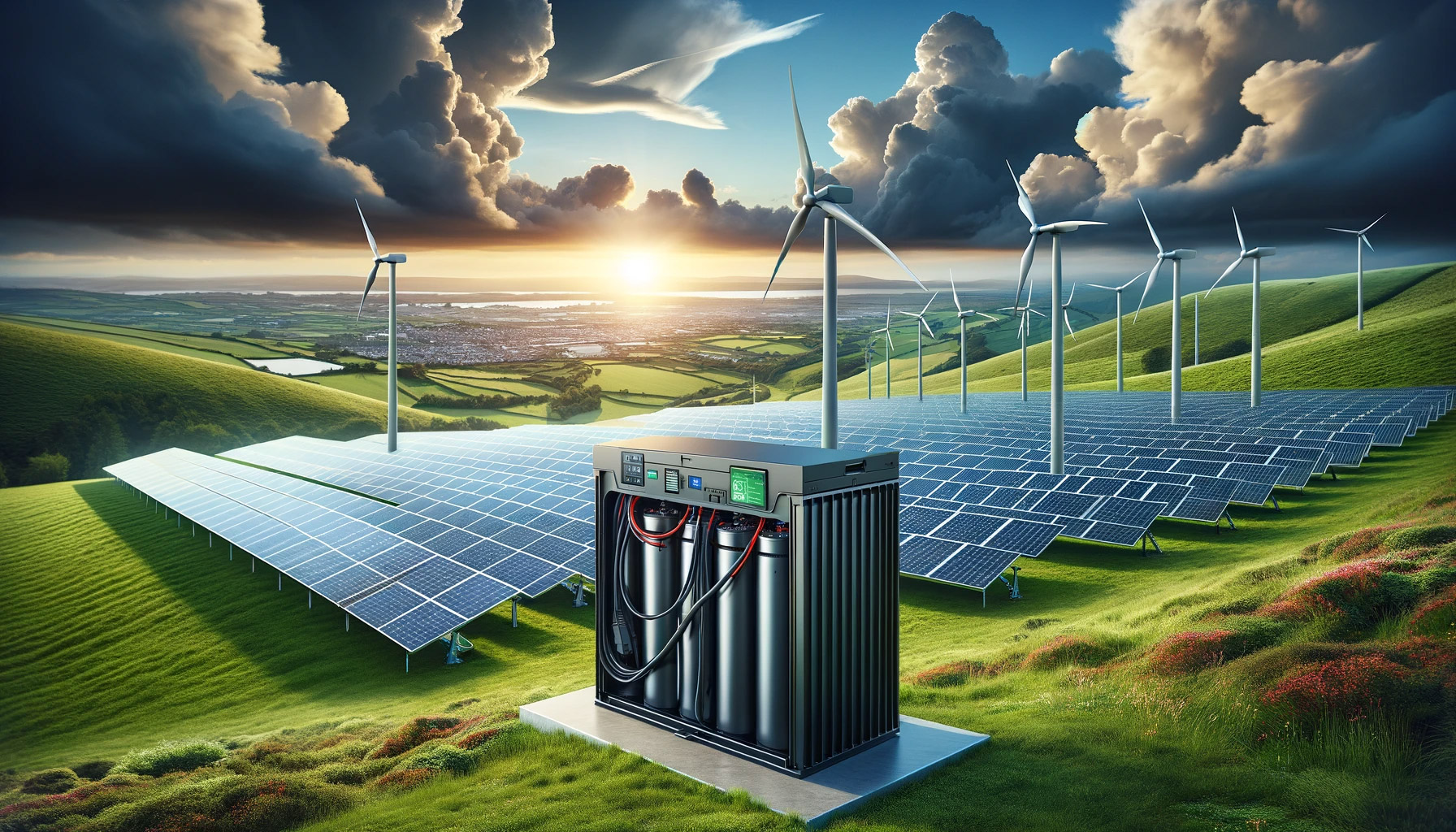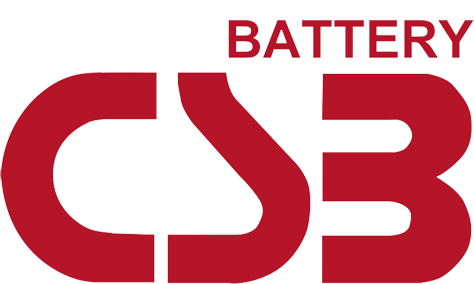Why Sustainable Backup Power Systems Are the Future
In the wake of global climate change and the thrust towards reducing carbon footprints, renewable energy sources are being embraced more than ever. This push towards sustainability is no exception in the United Kingdom. The UK's commitment doesn't just extend to primary power sources but branches into the heart of our power systems - involves the essential backup power systems that ensure the lights never go out. This article dives deep into the evolving landscape of sustainable backup power systems in the UK, the emerging trends, the role of hydrogen fuel cells, and how renewable energy resources like solar and wind play a part in these systems. We will also touch upon the concept of Microgrids and shed light on the cost and efficiency benefits of battery storage systems. Let's embark on this insightful journey towards understanding the necessity and journey of sustainable backup power systems in the UK.
Significance of Backup Power Systems
When running crucial operations, whether in a workplace or at home, having a consistent and reliable power supply is key. However, power outages invariably disrupt daily productivity and could even lead to substantial financial losses. This is where backup power systems come into the picture. They ensure the continuity of critical functions, safeguarding against unforeseen power interruptions. This need for backup power systems has surged particularly during the COVID-19 pandemic as individuals and businesses have become increasingly reliant on digital setups.
Importance in Data Centres
Data centres, the backbone of today's digital world, store, process, and manage massive amounts of data. Any interruption to their operations can result in devastating consequences. A seamless power supply is critical in data centres; even a few minutes of downtime can cause significant data losses and disrupt ongoing transactions.
With a robust backup power system, however, data centres can dramatically minimise these risks. These systems guarantee the seamless operation of servers, networking devices, and storage equipment during power outages, ensuring data protection and the continuity of business operations.
Let's look at the key benefits:
- Reliability: Backup power systems offer a reliable alternative during power outages, preventing the loss of vital data, and keeping essential functions in operation.
- Safety: They ensure the safety of the equipment, minimising the risk of damage due to sudden power cuts.
- Business Continuity: They ensure uninterrupted service to customers, thereby preserving businesses' credibility and reputation.
Importance in Uninterruptible Power Supply
An uninterruptible power supply (UPS) is another crucial arena where backup power systems hold significance. A UPS system is designed to deliver short-term power during an outage, giving enough time for an alternative power source to commence or to properly shut down the equipment to prevent data loss or damage.
A backup power system enhances the capabilities of a UPS by providing an immediate power supply during outages, thus preventing operational disruptions. Here are a few benefits:
- Instant Power: A backup power system kicks in immediately after a power cut, ensuring that no operations are halted.
- Prevents Data Loss: By providing instant power, they prevent any potential data loss that can occur due to abrupt shutdowns.
- Long-term Backup: While a UPS can only support a short-term power supply, a backup power system can offer long-term power until the main power source is restored.
Backup power systems, therefore, play an integral role in maintaining business continuity and ensuring the reliable running of crucial operations, particularly in sectors like data centres and uninterruptible power supply systems. By mitigating the risks associated with power failures, they contribute significantly to smooth and uninterrupted operations.
Emerging Trends in Backup Power Systems
Power interruptions are one of the primary risks that businesses and homes face in today's digital age. These blackouts can lead to lost productivity, ruined data, and damaged equipment. Hence, having a reliable backup power system has become more crucial than ever. As technology advances, the global market is seeing the rise of emerging trends in backup power systems, influencing consumer choices, and shaping the industry. Here, we'll delve into three of these trends: modular backup power systems, scalable backup power systems, and lithium-ion power backup systems.
Modular Backup Power Systems
One of the rising trends is the adoption of modular backup power systems. These systems stand out because they offer an exceptional degree of customisation. Rather than having a single massive unit, you can construct your backup power system from smaller modules. This design allows a high level of adaptability, which can be very useful in maintaining the balance between capacity and usage.
- Flexibility: The modular design allows the possibility to ramp up capacity when needed and downsize if the power demand decreases.
- Efficiency: Each module can operate independently, which means only the necessary amount of power is produced, saving energy, and reducing costs.
- Practicality: If a part of the power system fails, the separate modules can still function, preventing complete system downtime.
Scalable Backup Power Systems
Scalability is another significant trend on the horizon. Scalable backup power systems provide the advantage of capacity expansion without needing significant modifications. In essence, you can add or subtract components as per your current power requirements.
- Adaptability: Scalable systems accommodate fluctuations, minimising the risk of both insufficient and excess power.
- Sustainability: They can adapt to the growth of businesses or homes, representing a long-term solution.
- Cost-Efficiency: Being able to scale the system as needed represents a considerable saving in terms of investment and operation costs.
Lithium-Ion Power Backup Systems
Finally, there's a growing adoption of lithium-ion-powered backup power systems. Lithium-ion batteries have significant advantages over traditional lead-acid batteries, making them increasingly popular in backup power applications.
- Longevity: They have a longer lifespan compared to lead-acid batteries, allowing for a lower total cost of ownership.
- Space-saving: Given their higher energy density, lithium-ion batteries can store more power in less space.
- Eco-Friendly: Lithium-ion batteries are better for the environment due to their recyclable elements.
As the world continues to advance digitally and technologically, the significance of backup power systems will continue to increase. Business owners and homeowners must stay aware of these trends and evaluate various options before deciding which backup power system is most suitable. It's important to understand the unique attributes of modular, scalable, and lithium-ion-powered backup power systems to make an informed decision.
The Role of Hydrogen Fuel Cells
Embracing renewable energy sources is the call of the hour, and hydrogen fuel cells are rising as a promising alternative. Plucked from the renewable energy lexicon, hydrogen fuel cells are innovative energy solutions that help us step into a more sustainable future. But where do they shine the most? A fascinating prospect lies in their potential as a reliable backup power source for data centres.
Hydrogen fuel cells combine hydrogen and oxygen to produce electricity, with the only by-products being water and heat. This process, known as electrochemical conversion, is highly efficient and pollution-free. Compared to traditional energy sources, these fuel cells come with added benefits, making them increasingly attractive.
These benefits extend to:
- Environmental sustainability: Hydrogen fuel cells are environmentally friendly since they produce zero greenhouse gas emissions. This makes them a key asset in reducing our carbon footprint.
- Efficiency: As an electrochemical device, a fuel cell is incredibly efficient, wasting less energy in the form of heat compared to combustion methods.
- Reliability: Hydrogen fuel cells are incredibly reliable sources of power, with less chance for failure or interruption—a vital attribute for data centres.
An interesting application of these advantages manifests in something very crucial in today's digital age - data centres. Data centres run 24/7, consuming vast amounts of power. In case of an energy supply interruption, these centres could face dire costs. The constant, uninterrupted power supply provided by hydrogen fuel cells makes them an ideal backup energy source.
An inviting scenario awaits us: a world where data centres run on hydrogen fuel, substantially reducing their environmental impact, while securing reliable power supply. This is an optimistic vision fuelled by the potential of hydrogen fuel cells. Naturally, it requires further research and development - but the journey towards this sustainable alternative has already begun.
Embracing hydrogen fuel cells in data centres notably helps us inch closer towards a more renewable, brighter future. A revolutionary shift in renewable energy solutions, hydrogen fuel cells serve as a beacon - leading us toward cleaner, sustainable energy for our tech-reliant world.

Bridging the Gap with Renewable Energy Sources
As we balance on the brink of a climate crisis, it is more urgent than ever to switch from fossil fuels to renewable energy. By harnessing the power of nature, we can significantly reduce our carbon footprint, promote sustainability, and continue to power our world in harmony with the environment.
Solar Power
Solar power, derived from the sun's radiant energy, represents a clean, green source of electricity. Its adoption has seen exponential growth, particularly in the UK, where it is outperforming traditional energy sources. The benefits of solar energy are hard to ignore:
- It's a sustainable, inexhaustible, and clean form of energy that reduces reliance on fossil fuels.
- Its generation process creates zero emissions and noise, contributing to a better environment.
- Though initial setup costs are high, long-term savings in energy bills offset these expenses.
The region's increasing solar potential means harnessing and optimising these facilities should be a priority for a sustainable future.
Wind Power
In addition to solar, wind energy represents a key player in our green energy future. Wind turbines convert kinetic energy from the wind into usable electric power. This power source, characterised by its low operating costs and reduced environmental impact, is a boon to our world brimming with air pollution.
Despite occasional challenges like noise and aesthetic disturbances, wind turbines can produce massive amounts of renewable energy without depleting natural resources. Therefore, it's not surprising that wind power holds significant potential in the UK's energy outlook.
Battery Energy Storage Systems
Renewable energy sources like wind and solar power have one major drawback: their production depends on environmental conditions. This is where battery energy storage systems come into play.
These innovative systems store surplus energy produced during optimal conditions for use during periods of low production. Not only does this ensure constant energy provision, but it also significantly improves the efficiency of renewable energy sources.
The benefits of these storage systems align perfectly with their solar and wind counterparts, emphasising the need for a holistic approach towards renewable energy adoption. Today, the consensus is this: battery energy storage systems are pivotal in unlocking the full potential of renewables.
Fostering a future powered by renewable energy requires embracing and maximising these key sources. As we move towards this sustainable future, it's evident that solar power, wind energy, and battery energy storage systems are not just alternatives, but essentials. Through their adoption and optimised use, we can bridge the gap from conventional to renewable energy, ushering in an era of sustainable, environmentally friendly power for all.
Microgrids: Modified Power Solutions
From powering remote, isolated areas to sustaining critical utilities during grid outages, microgrids have been revolutionising the global energy landscape. A microgrid is a scaled-down, local energy grid that can function independently or along with the larger established power system. One of the key elements adding to the effectiveness and efficiency of microgrids is grid batteries.
Grid Batteries
Grid batteries play a pivotal role in smoothing out intermittent renewable energy output. Acting as an energy insurance policy, these batteries store the excessive power generated during peak periods of energy production for use in lean periods. In a microgrid setup, grid batteries act as the connective tissue that bridges the gap between supply and demand ensuring consistent power availability.
Storing excess energy - The surplus power generated by renewable energy sources during peak times (like mid-day for solar) is stored in the grid batteries. This counterbalances the power deficit during non-peak times (like nighttime for solar).
- Sustainability - With a high capacity and longer lifespan, grid batteries contribute to the sustainability of microgrids. By storing and efficiently utilising energy, these batteries reduce the reliance on traditional, pollutant energy sources.
- Navigating outages - During a utility grid disturbance, grid batteries enable a smooth transition of the microgrid into 'island mode', providing an uninterrupted power supply.
Distributed Generation
Another pivotal component of microgrids is distributed generation. From solar panels to wind turbines and fuel cells, distributed generation sources allow the production of energy close to the point of consumption resulting in reduced transmission losses.
- Diverse resource utilisation - Distributed generation allows leveraging a wide range of energy sources - from renewable to non-renewable, adding to the flexibility of power generation. This diverse energy portfolio mitigates the risk of relying on a single energy source.
- Decentralisation of power - With power produced locally, the dependency on the central power grid is substantially reduced. This decentralisation encourages community participation in power generation, leading to increased energy conservation awareness.
- Increased resilience - By reducing the dependency on the central power grid, distributed generation minimises the risk of outages. In situations where the central grid is down, microgrids can continue to function independently, ensuring power supply without any interruptions.
In the shifting tides of the global energy scenario, microgrids batter down the hatches for a more sustainable, reliable, and flexible power system. Through grid batteries and distributed generation, these modified power solutions are paving the way for a cleaner, greener future. Remember, as we power towards a more sustainable existence, every little microgrid matters.
Cost and Efficiency Benefits of Battery Storage Systems
In the bustling world of technology and energy production, battery storage systems are revolutionising the way we store and use energy. These systems, which store electrical energy for later use, are becoming increasingly significant considering global pushes toward sustainable and renewable energy sources.
One of the key benefits that battery storage systems offer is cost savings. As with any investment, the initial cost might seem daunting. However, over time, this financial obligation will translate into potential savings. By storing energy during off-peak hours when energy prices are low, businesses and residential users can discharge and use this energy during peak hours, thereby avoiding or considerably reducing higher electricity costs.
Here are a few more cost-related benefits you need to consider:
- Maximising Renewable Energy Usage: Battery storage systems enable the maximum use of produced renewable energy. They store excess or unused energy that would have otherwise been wasted.
- Avoiding Power Outages and Service Interruptions: Power outages often come with associated costs, especially for businesses. Battery storage can provide reliable power, reducing the impact of such occurrences.
- Reduced Investment in Power Infrastructure: Businesses can lower their investments in power generation infrastructure as storage systems enhance the usability of already existing energy sources.
Now, let's not forget about energy efficiency. Battery storage systems also play a fundamental role in enhancing the efficiency of energy usage. By storing surplus electricity produced during low-demand periods and releasing it during peak times, these systems optimise the power supply, decrease the need for additional energy production and, consequently, reduce the overall carbon footprint.
Furthermore, battery storage systems allow for the stabilisation and smoothing of the power supply, making energy available when it's most needed. This functionality is empowering to consumers, offering them greater control over their energy use without compromising their needs.
As the world moves towards a more sustainable lifestyle, one cannot overstate the significant cost and efficiency benefits of battery storage systems. This shift has the potential to bring both economic and environmental advantages, transforming our relationship with energy in a genuinely sustainable way. After all, the future of energy is not just about producing more, but utilising it wisely and efficiently.
Conclusion
As we steer towards an energy-efficient future in the UK, sustainable backup power systems emerge as a necessity, not a luxury. Their significance is undeniable across a range of sectors, from personal use to critical infrastructure like data centres. As emerging trends such as modular and scalable units, lithium-ion systems, and hydrogen fuel cells gain traction, they present numerous opportunities for enhanced resilience and improved operational efficiency.
By transitioning from traditional power sources to renewable energy, including solar and wind power, and leveraging technologies like microgrids and battery storage systems, we can bridge the gap towards a more sustainable future. The cost and efficiency benefits offered by battery storage systems make them an attractive long-term investment. Yet, understanding, deciding, and implementing the most suitable power backup solution requires expertise.
Secure Power, a trusted UK-based provider of backup power solutions, is equipped with the resources and knowledge to guide you to the right solution. Whether you're looking for a small UPS for your server or planning on robust systems for large-scale infrastructures, you can rely on our dedicated team at Secure Power to be your partner in this transition towards sustainable backup power systems. Our commitment to quality service and our extensive warranty plans underline our role as your reliable and future-ready power backup partner.
Frequently Asked Questions
-
What are sustainable backup power systems?
Sustainable backup power systems are energy solutions that provide power during emergencies or blackouts, utilising renewable energy sources such as solar, wind, or hydropower. They are environmentally friendly and help reduce reliance on fossil fuels.
-
Why are sustainable backup power systems important in the UK?
Sustainable backup power systems are important in the UK because they help reduce carbon emissions and combat climate change. They also provide a reliable source of power during emergencies, ensuring continuity for critical infrastructure, businesses, and households.
-
What are the benefits of using sustainable backup power systems?
Using sustainable backup power systems offers several benefits. These systems help minimise environmental impact, reduce energy costs in the long run, provide energy security, and contribute to a more sustainable and resilient energy infrastructure.
-
Are sustainable backup power systems expensive?
While the initial cost of setting up sustainable backup power systems may be higher than traditional backup generators, they offer long-term cost savings through reduced fuel expenses. Additionally, government incentives and advancements in renewable energy technology are making these systems more affordable.
-
What are some popular sustainable backup power systems available in the UK?
In the UK, some popular sustainable backup power systems include solar backup systems, wind turbines with battery storage, and micro-hydro systems. These systems can be customised to meet specific power requirements and are increasingly being adopted by businesses and homeowners.














